 I wonder if they have Elmo... Need a specialty cake pan in which to bake dessert for your next celebration? Well, if you live in Kansas, look no further than your local library. (I'm going to have to find out if Illinois libraries go the extra mile to perform this service!)
0 Comments
With a video, of course! A clever parody of Sir Mix-a-lot's "Baby Got Back" by a middle school out of Texas.... And we're talking a glass of wine the size of a 7-11 Big Gulp! Every night -- with dinner --- and sometimes before! Better make that a 32 ounce!
 Leonard Pinth-Garnell (aka Dan Aykroyd) Thanks to my Highsmith Librarian's Desk Calendar, I learned that today, August 18th, is National Bad Poetry Day. Of course I had to do a little research on this holiday of which I knew absolutely nothing (except that it sounds delightfully fun!) Turns out that National Bad Poetry Day was not created by Congress, nor the Library of Congress, nor Hallmark (that would be National Sappy Poetry Day), nor Leonard Pinth-Garnell, but by entrepreneurs Thomas and Ruth Roy, who apparently copyrighted the idea through their "Wellcat" website. (They also apparently sell herbs, but I did not venture a mouse click to find out which kind.) The Roys suggest celebrating the holiday by inviting some friends over to write some wretched poems and then sending them to your old high school English teachers. I'll admit that sounds like a hoot to me (but then I'm a writer.) If you don't have time to put together a poetry party, you can mark the day by checking out the bad poetry compiled at (where else?) Very Bad Poetry ("the last refuge of the world's worst poetry.") There you can find such gems as "Mexican Food" (which, to pinch a Pinth-Garnell phrase, really bites the big one (pun fully intended). Or take a gander at the execrable haiku "Butterfly" (as Pinth-Garnell would say "exquisitely awful") or the monumentally ill-advised "Fattypants." You might also despise the horrifically sadistic "Bachelor of IT" and the stunningly bad favorite of physicists everywhere, "Schrodinger's sex panther." Or take a moment to jot down some unrelentingly bad verse yourself and post it. If you do, send me the link so we can all enjoy. Or feel free to write some bad (as opposed to badass) poetry in the comment box. As Leonard Pinth-Garnell would put it, "There now, that wasn't so good, was it?" Whew! Over 1,400 miles in three days. A college move-in odyssey filled with laughter, tears, and a whistling toilet in Corning, New York. What more can one ask of a road-trip? But it's good to be home -- and just in time to celebrate the annual Bulwer-Lytton Fiction Contest! 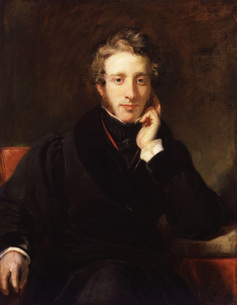 EGB-L: Patron saint of bad literature Who? Edward George Bulwer-Lytton! You know, the guy who originally composed that opening sentence that Charlie Brown's beagle, Snoopy, is always plagiarizing for his own novel: "It was a dark and stormy night..." Okay, okay, a little background might be in order... Way back in 1982, the English Department at San Jose State University initiated the Bulwer-Lytton Fiction Contest, a tongue-in-cheek literary "competition" that challenges entrants to come up with the opening sentence to "the worst of all possible novels." The contest sprang from the twisted mind of Professor Scott Rice, whose stumbled upon the source of the line “It was a dark and stormy night” while a graduate student. For a class assignment on minor Victorian novelists, he selected Bulwer-Lytton, who was best known for foisting these works upon an unsuspecting society: The Last Days of Pompeii, Eugene Aram, Rienzi, The Caxtons, The Coming Race, and – not least – Paul Clifford, where you will find that "dark and stormy" phrase. 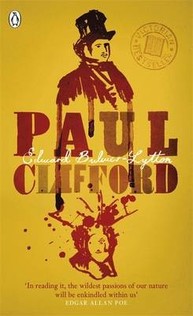 With a promotional quote by Poe! For your reading pleasure, here is the complete opening line: "It was a dark and stormy night; the rain fell in torrents — except at occasional intervals, when it was checked by a violent gust of wind which swept up the streets (for it is in London that our scene lies), rattling along the housetops, and fiercely agitating the scanty flame of the lamps that struggled against the darkness.” Lytton coined a few other cliches that you might have used once or twice yourself: “the pen is mightier than the sword,” “the great unwashed,” and “the almighty dollar." Pop culture sidenote: Lytton’s ancestral estate at Knebworth was chosen by director Tim Burton as the setting for Wayne Manor in the 1989 movie Batman.  Courtesy: Bulwer-Lytton contest Since 1982, over 10,000 writers have taken up their pens or tapped their keyboards in hopes of one-upping Bulwer-Lytton's immortal opening line. And now, without further ado, here's the winner for 2012: "As he told her that he loved her she gazed into his eyes, wondering, as she noted the infestation of eyelash mites, the tiny deodicids burrowing into his follicles to eat the greasy sebum therein, each female laying up to 25 eggs in a single follicle, causing inflammation, whether the eyes are truly the windows of the soul; and, if so, his soul needed regrouting." — Cathy Bryant, Manchester, England You can read the other dubious achievements in a variety of genres (fantasy, children's, historical fiction, a special "purple prose" category and others) at the Bulwer-Lytton contest website. Enjoy!
Well, another Olympics draws to a close. Over 10,000 athletes representing 204 countries managed to live in close quarters and engage in fierce competition without maiming or killing each other in a struggle over land or differences in the color of their skin or their religious beliefs. Is this a reflection of the idea that the things that we have in common as human beings are actually stronger and far more numerous than our differences? Or does all that swimming and running and diving and volleyballing and cycling just leave everyone too tired to squabble? If the latter is the case, then I recommend the government leaders of all the nations of the world immediately begin an extreme regimen of diet and exercise.  However, about those common bonds. It is true that "The Golden Rule" is a stated maxim in all faiths. An ethic of reciprocity, a similar code of morality runs through them all: Baha'i: "And is thine eyes be turned towards justic, choose thou for thy neighbor that which thou choosest for thyself." -- Lawh'i 'Ibn'i Dhib "Epistle to the Son of the Wolf" 13 Buddhism: "Hurt not others in ways you yourself would find hurtful." -- Udana-Varga, 5:18 Christianity: "In everything do to others as you would have them do to you; for this is the law and the prophets." -- Matthew 7:12 Confucianism: "Do not unto others what you do not want them to do to you." --Analects 15:13 Hinduism: "This is the sum of duty: do naught unto others which would cause you pain if done to you." -- The Mahabharata, 5:1517 Islam: "Not one of you is a believer until he loves for his brother what he loves for himself." -- Fortieth Hadith of an-Nawawi 13 Jainism: "A man should wander about treating all creatures as he himself would be treated." -- Sutrakritanga 1:11:33 Judaism: "What is hateful to you, do not do to your neighbor: that is the whole of the Torah; all the rest of it is commentary." -- Talmud, Shabbet 31a Native American: "Respect for all life is the foundation." -- The Great Law of Peace Sikhism: "Treat others as thou wouldst be treated thyself." -- Adi Granth Taoism: "Regard your neighbor's gain as your own gain and your neighbor's loss as your own loss." -- T'ai Shang Kan Ying P'ien Zoroastrianism: "That nature alone is good which refrains from doing unto another whatsoever is not good for itself." -- Dadistan-I-Dinik, 94:5 (Translations courtesy of the Tanenbaum Center for Interreligious Understanding, www.tanenbaum.org) Another case of "easier said than done?"  Intern George will sing tonight But enough seriousness for one morning. Intern George reports that rehearsals for the Closing Ceremonies have been "brilliant" and that he is simply "over the moon" at being a participant. He refuses to divulge the set list for the "celebration of British music," although he did say The Who (what's left of them) and Annie Lenox (with her old Eurythmics band mate Dave Stewart) were in especially fine voice. In one of those moments where I went searching for information about one topic and stumbled across information on something entirely different, I recently learned that the Kingdom of Bhutan measures not only its Gross Domestic Product (GDP), but its Gross National Happiness (GNH) as well. 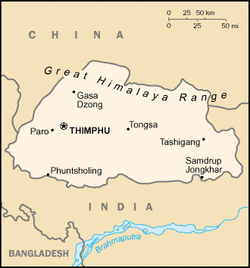 Bhutan ("Land of the Thunder Dragon") is a landlocked state in South Asia, nestled on the southern slopes of the Himalayas, sandwiched between India and China. It's a land of steep, jagged mountains and deep valleys through which course swift-flowing rivers. Its diverse flora and fauna include the increasingly rare Bengal tiger and snow leopard, the red panda, and primates such as the golden langur. (Sounds delightfully like some parts of Middle Earth.)  Golden Langur In 1999, just before the new Millennium, Bhutan lifted its ban on television and the Internet. And throughout the first decade of the 21st Century, it underwent considerable political reform, becoming a constitutional monarchy, with a cabinet of ministers and an elected National Assembly that has the power to impeach the monarch! Through the Centre for Bhutan Studies, it also made a serious attempt to measure the happiness of its people through an indicator called Gross National Happiness that measures quality of life and social progress in more holistic and psychological terms than simple economic factors, which in Bhutan's case is "how much electricity can we sell to India?" (All those rushing rivers create a lot of hydroelectric power!)  Bhutan temple = Shangri-La? Learning all this, of course, got me to thinking about happiness in general. Bhutan measures it in nine different domains, including time use, cultural and ecological diversity, resilience, education, health and something called "good governance." Hmmmm, we might have to leave that last one off of any happiness survey taken in Illinois (and on a national level). When seeking to form an opinion on weighty matters, I often like to consult the words of my predecessors in hopes of gaining a larger perspective. So once again, I turned to Bartlett's and the online quote farms for a gander at the wisdom of the ancients. 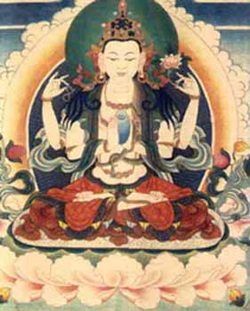 Image of Buddha (Tibetan) Since the majority of the Bhutanese practice Buddhism, it seemed appropriate to consult Buddha first. And, as usual, with him, as with Janet Jackson, it's all about control: "To enjoy good health, to bring true happiness to one's family, to bring peace to all, one must first discipline and control one's own mind. If a man can control his mind he can find the way to Enlightenment, and all wisdom and virtue will naturally come to him." The Dalai Lama weighed in on this as well: "Happiness is not something ready made. It comes from your own actions." I sense a lack of emphasis on the material here.  He looks reasonably happy. "Money has never made man happy, nor will it, there is nothing in its nature to produce happiness. The more of it one has the more one wants." That's Benjamin Franklin talking. Of course, he also said this: "Marriage is the most natural state of man, and... the state in which you will find solid happiness." And there are scads of unhappily married people in the world who would vociferously disagree. (I would hope that does not include the King and Queen of Bhutan, who look like a darling couple who would be a sparkling addition to any dinner party.) 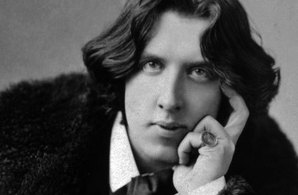 "Make my day. Go away!" Speaking of dinner parties, that means other people, and there are plenty of opinions out there about how other people can or cannot affect one's happiness quotient. As Oscar Wilde, he of the razor-sharp wit, noted: "Some cause happiness wherever they go; others whenever they go." I would be remiss if I did not consult the Bard of Avon, who moaned: "But O, how bitter a thing it is to look into happiness through another man's eyes." (from Act 5, Scene 2, As You Like It.) Mr. Acerbic Straightshooter (literally and figuratively) Ernest Hemingway complained that "the only thing that could spoil a day was people. People were always the limiters of happiness except for the very few that were as good as spring itself."  I'm happy just looking at her! Wow, you're mumbling to yourself, this is getting rather depressing! I thought the topic was "happiness!" Okay, okay, enough angst about happiness! After all, according to comedian George Burns, "happiness is having a large, loving, caring, close-knit family in another city." And doctor, do-gooder and Nobel Prize-winner Albert Schweitzer (and Audrey Hepburn paraphrasing him) joked that "happiness is nothing more than good health and a bad memory."  Gustave "I am the Walrus" Flaubert Hmmm, I sense a trend here about happiness and the brain. Hemingway (yes, him again) wrote: "Happiness in intelligent people is the rarest thing I know." But let's allow Gustave Flaubert to have the last word on happiness for today: "To be stupid, selfish, and have good health are three requirements for happiness, though if stupidity is lacking, all is lost." Okay, Mr. Flaubert, if that's the case, then what was Madame Bovary's problem? A couple of posts ago, I summed about the hilarity of #CheeseLit, which attempted to come up with the cheesiest book titles ever. Well, today's inspired hashtag is ZombieWesterns. What a fabulous way to waste the precious time we have on this Earth! However did we have fun without Twitter? Some favorites and a few of my own devising...  10. All the Pretty Corpses 9. High Brains Drifter 8. Extremely Pale Rider 7. Butchered Cassidy and the Undead Kid  6. Munch Upon a Guy in the West 5. The Good, the Bad and the Undead. 4. The Man Who Ate Liberty Valence 3. The Ox-Bone Incident 2. The Quick and the Living Dead 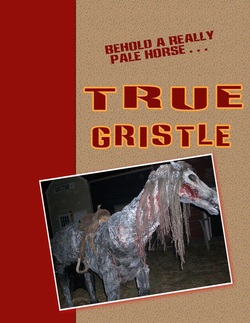 And one of my favorite Westerns.... 1. True Gristle Again, thanks to Keir Graff of Booklist Online for his creative jump-start. August 6th marks the 67th anniversary of the destruction of the city of Hiroshima, Japan with the first use of an atomic weapon. Thinking men and women should spend some time investigating the back story of this event and its role in shaping the world as we know it.  The Making of the Atomic Bomb Richard Rhodes (Simon & Schuster, 1986) This is the definitive work on the subject. Yes, it's long (over 800 pages) and not an easy read, but Rhodes writes in a gripping style and delivers facinating psychological insights into the personalities of the men behind the Manhattan Project. Rhodes covers it all: the theoretical origins of the bomb in the mind of Leo Szilard, the lab experiments spearheaded by Enrico Fermi and his crew of scientists at the University of Chicago, the building of the prototype, the test at Alamagordo, New Mexico, the training of the B-29 crews assigned to deliver the first two bombs and the missions themselves. He also delves into the struggle in Nazi Germany and Imperial Japan to make the first bomb, as well as the political and military events that led to the destruction of the Japanese cities of Hiroshima and Nagasaki. Well worth the time and effort.  Pandora's Keepers: nine men and the atomic bomb Brian VanDeMark (Little, Brown, 2003) VanDeMark puts his focus on the nine men who built the atomic bomb and how each struggled with the implications of their deadly creation. He does an excellent job of bringing these brilliant scientists to life in this examination of the moral ambiguity that exists in "an imperfect world that sometimes forges good from evil and evil from good." First, we witness science at work, in the act of creation that drove these talented individuals. However, then VanDeMark switches gears and tackles the issues of the aftermath, when the scientists, academics all, realized the real-world horrors and implications for the future that their creation had wrought. Pandora indeed.  Shockwave: countdown to Hiroshima Stephen Walker (Harper Collins, 2005) This high-speed rollercoaster ride of a narrative recreates a (literally) minute-by-minute retelling of the Hiroshima bombing as remembered by American soldiers, Los Alamos scientists, and Japanese survivors. He examines the doubts and fears of the bomb's designers, the thought processes behind the selection of the targets, and the bewilderment of citizens of Hiroshima, who were victims not only of the U.S. bomb, but a Japanese government controlled by men who were determined to continue the fight at all costs. |
AuthorTo find out more about me, click on the Not Your Average Jo tab. Archives
February 2024
Categories
All
|



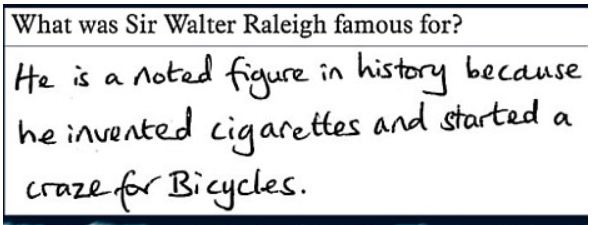

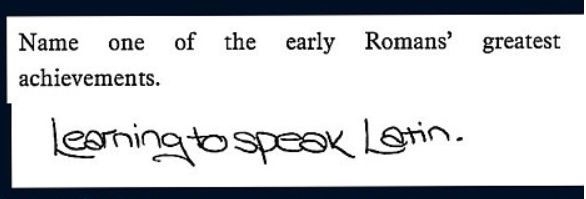
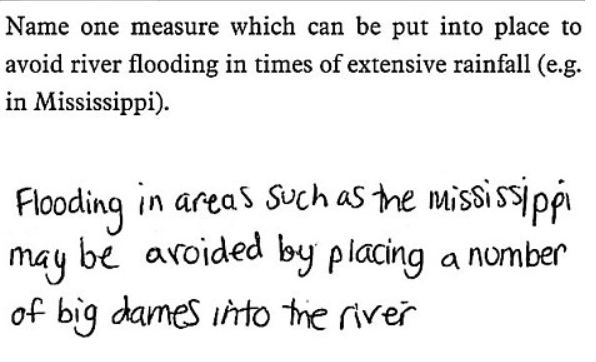

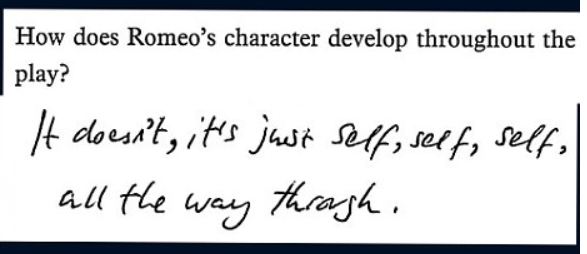

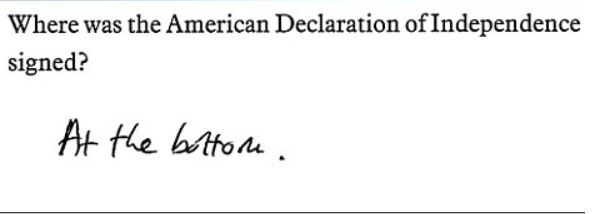
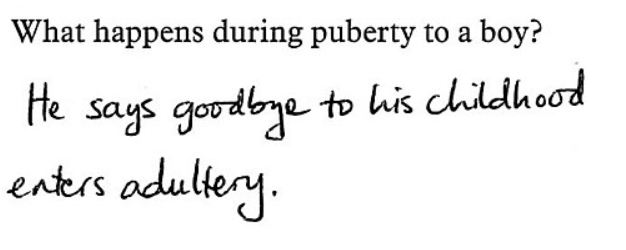



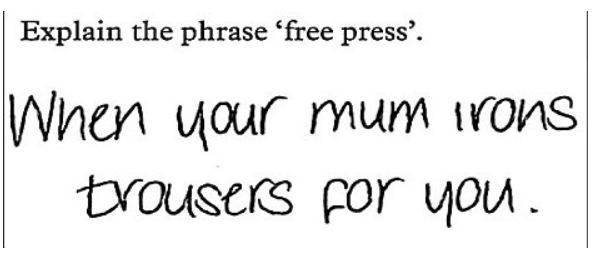
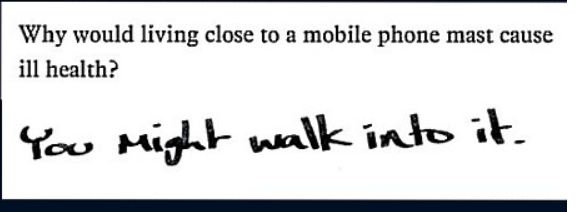





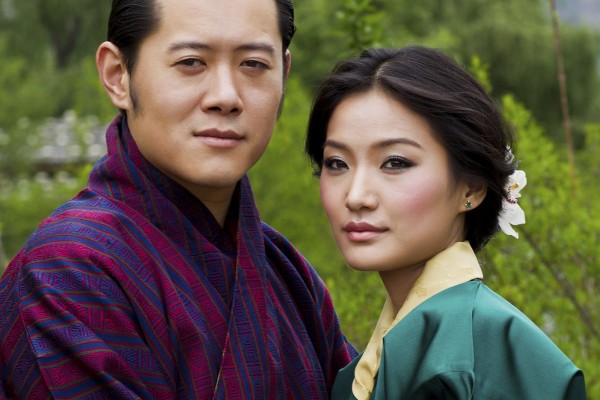
 RSS Feed
RSS Feed